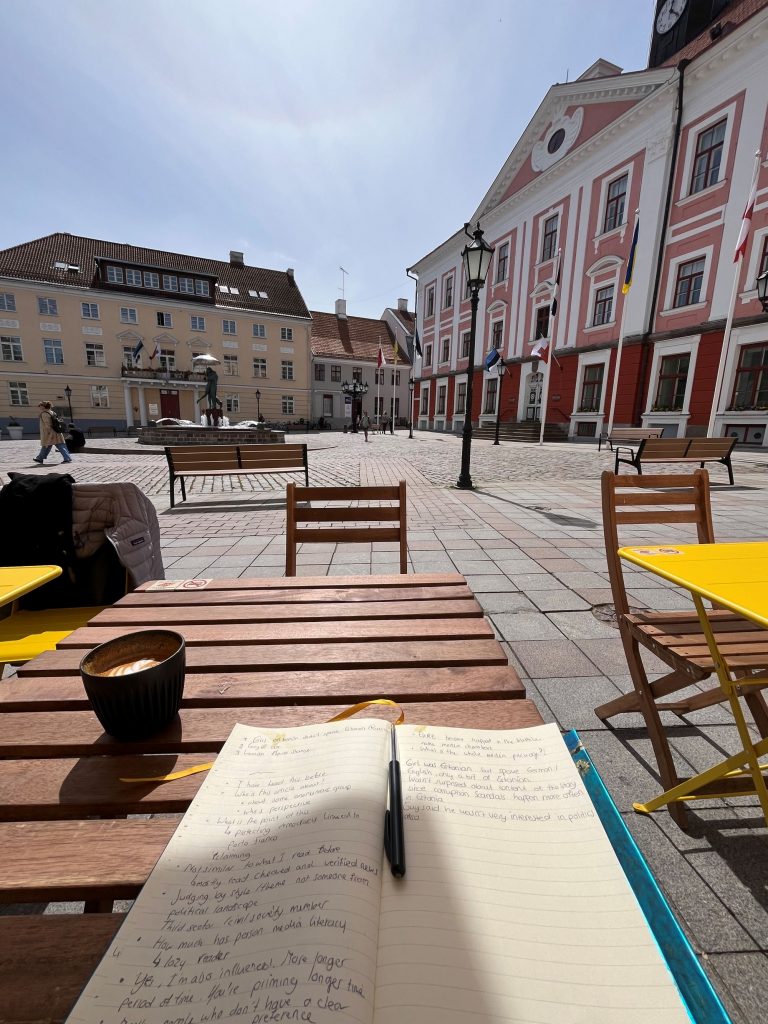As the first week of my fieldwork in Estonia comes to a close, it’s a good moment to reflect on my arrival and the work that’s already taken shape. I was warmly welcomed in Tartu at the Johan Skytte Institute of Political Studies. I was given an introduction and immediately included in the institute’s activities: joining a PhD event on Wednesday with presentations—and a beer afterwards. 🙂

In terms of fieldwork, it’s been rewarding to see everything coming together. With the help of two excellent research assistants, we’ve already conducted 22 interviews with citizens. Tartu, being a real student city, has allowed us to speak with students from various fields, but also with receptionists, museum staff, a pharmacist, elderly flower vendors, and fresh market sellers. Today, we’re heading to Võru, a town in southeastern Estonia, to broaden our scope beyond Tartu.
In addition to citizen interviews, I also conducted my first expert interview this week. The conversation raised an interesting point: how should Estonia be classified? Post-communist or post-Soviet, given its history in the Soviet Union until 1991? Or perhaps post-colonial, since Estonia was an independent country before the Soviet occupation, having declared independence in February 1918? Geopolitically, it’s often grouped with Latvia and Lithuania as one of the Baltic states, yet historically, linguistically, and culturally, it shares more with Nordic countries like Finland.
I haven’t reached a conclusion yet, but it’s certainly given me something to think about. For now, let’s see what Võru will bring today!